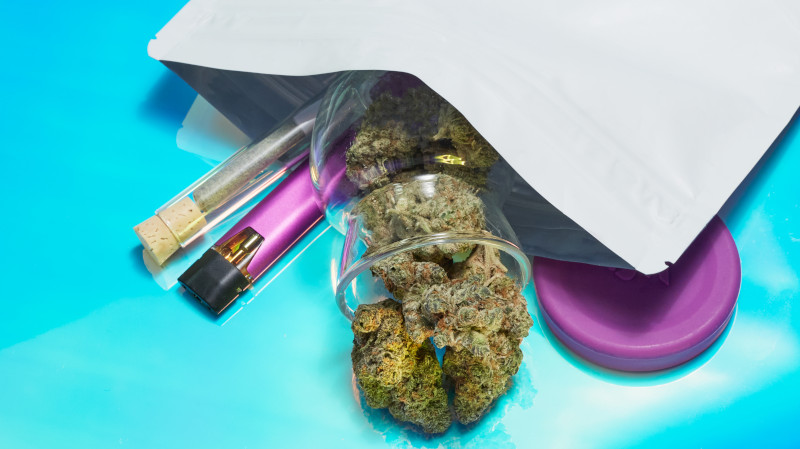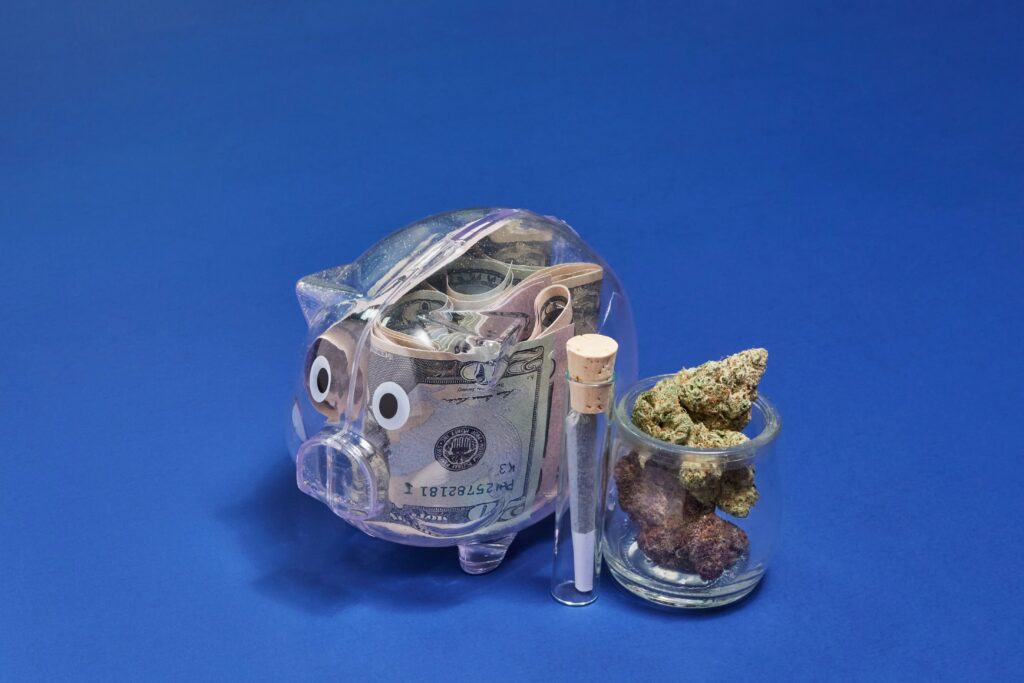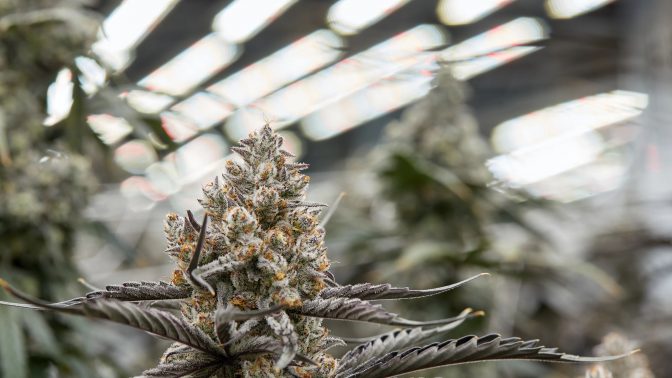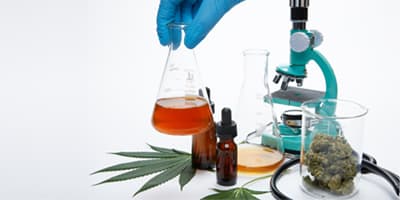A multinational investment bank says that marijuana has become a “formidable competitor” to alcohol, projecting that nearly 20 million more people will regularly consume cannabis over the next five years as booze loses a couple million drinkers. It also says marijuana sales are estimated to reach $37 billion in 2027 as more state markets come online.
An analysis from the firm TD Cowen says marijuana sales reached $29 billion in 2023, which is approximately 11 percent of what the alcohol industry brought it. That's up from four percent just five years ago, and marijuana is expected to grow by another seven percent annually over the next five years.
“As such, we believe that over the next 5 years, the cannabis category will add 18 million past-month consumers, while alcohol will lose 2 million past-month consumers, as consumers increasingly embrace cannabis and temper their alcohol consumption,” the report, titled “Cannabis Beats Booze,” says.
Vivien Azer, team lead on the analysis, told Marijuana Moment that the report bolsters a growing body of market research.
“We've been calling for seven years now for cannabis to increasingly prove as a dislocator to alcohol sales—and, really, it's just a matter of time,” she said. However, she said it was “a little surprising” to see data projecting an even greater underperformance for alcohol sales in legal marijuana states.

While marijuana sales are still just a fraction of the dominant alcohol market, analysts say that there's reason to believe that booze could be “at risk” of declining because of increased substitution among consumers, particularly young people. The TD Cowen report cited a proprietary survey that found more than two-thirds of cannabis users report reducing alcohol consumption.
“In turn, we are seeing divergent revenue growth trends in states where consumers have access to legal cannabis,” it said, noting that Bureau of Economic Analysis (BEA) data shows alcohol is “underperforming” in legal marijuana states relative to prohibitionist states.
Evolving state marijuana markets, as well as yet-to-be-implemented laws in states that recently legalized such as Minnesota and Ohio, will bring in an estimated $37 billion in sales in 2027, the report says.
It adds that, in the short-term, it doesn't seem that alcohol companies will have difficulty navigating the shifting consumer trends, which also involve mostly younger people generally reducing their alcohol intake. But in the medium- and long-term, certain brands may face competitive challenges.
“Alcohol will continue to underperform in legal cannabis states,” the firm said, adding that beer sales are most at-risk according to its analysis. The average number of drinks that people have in a given occasion “is lower in cannabis states, which we believe is partially attributable to the impact cannabis has had on alcohol consumption.”
While there's been reporting about the alcohol industry's interest in potentially entering the marijuana market, Azer said that she doesn't anticipate a significant movement until there's some “legislative or administrative” regulatory change at the federal level.

While the report focuses on U.S. trends amid the state legalization movement, TD Cowen also looked at Canada, which legalized marijuana at the national level in 2018, as a “useful case study.” It found that Canadian cannabis sales are now 20 percent the size of the alcohol market.
Several of the report's findings are supported by separate research, including a study published last month that found marijuana legalization may be linked to a “substitution effect,” with young adults in California “significantly” reducing their use of alcohol and cigarettes after the cannabis reform was enacted.
Data from a Gallup survey published in August also found that Americans consider marijuana to be less harmful than alcohol, cigarettes, vapes and other tobacco products.
A separate survey released by the American Psychiatric Association (APA) and Morning Consult in June also found that Americans consider marijuana to be significantly less dangerous than cigarettes, alcohol and opioids—and they say cannabis is less addictive than each of those substances, as well as technology.
Last year, a survey showed that Americans believe that cannabis is less dangerous than alcohol or tobacco.
State-level market data also reinforces TD Cowen's analysis. For instance, Michigan marijuana sales outpaced purchases of beer, wine and liquor combined during the most recent fiscal year, according to a new report from the legislature's nonpartisan House Fiscal Agency.
Also during the last fiscal year in Illinois, legal cannabis brought in $451.9 million—about $135.6 million more than alcohol.
Colorado last year state generated more income from marijuana than alcohol or cigarettes—and nearly as much as alcohol and tobacco combined. Similar milestones have been seen in Arizona and Washington State.
Written by Kyle Jaeger for Marijuana Moment.




